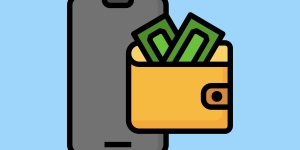Brand Directory: DeFi
A
- Automated Usdt Capital
- Aarma
- Aave
- Aavescan
- Abel Finance
- Abracadabra.Money
- Absorber
- Abyss Finance
- Acala Network
- AceD
- AceStarter
- Acet.finance
- Acetic Protocol
- ACoconut
- Across Protocol
- ACryptoS
- Acta Finance
- ADA Lend
- ADADAO
- Adamant Finance
- Adamite Finance
- ADAO
- Add.xyz
- ADToken
- Adventureland Finance
- AEON
- AeroSpace Finance
- Aeternity
- AFKDAO
- AfraSwap
- AfterBurner Finance
- Agave Finance
- Agile Finance
- Agora DeFi
- Agoric
- AidiVerse
- AIOZ Network
- AirCash
- AirEye
- akaChain
- Akash Network
- Akita Network
- Akropolis
- Akt.io
- AktaryTech
- Aktionariat
- AladdinDAO
- Alchemix
- Alchemy
- Alchemy Protocol
- Alcool Club
- Aldrin
- Aleph Zero
- Aleph.im
- ALEX
- ALEX Lab
- ALF WEB3 Project
- AlfaPro
- Algem
- Algo.land
- Algoblocks
- Algofi
- Algorand
- Algostake
- Alice SI
- Alien's Farm
- Aligned
- Alita Finance
- Alkemi Network
- Allbridge
- Allbridge Core
- AllChains.xyz
- AllianceBlock
- Allnodes
- Alluvial Finance
- Almora
- Alnair Finance
- Alpaca Finance
- Alpha Chain
- Alpha Finance
- Alpha Homora
- Alpha Protocol
- Alphadex
- Alps Finance
- Alta Finance
- Alta Labs
- AltaFin
- AltStake
- Amara Finance
- Amasa
- Ambrosus
- Ambrpay
- Ameruverse
- AMLBot
- AMLT Network
- AmorSwap
- Amp Token
- Amplify Protocol
- Amun
- Anchor Protocol
- AnchorSwap
- AngeL Nodes
- Angular Finance
- Annex Finance
- Anonverse
- AnonyDoxx
- Ant Finance
- Antex.org
- Antimatter Finance
- AntyBank
- AnubiSwap
- Ape Board
- Ape DAO
- APE Network
- Ape Universe
- ApeCoinBSC
- ApeRocket
- Aperture Finance
- ApeSafe Club
- Apex Predator
- API3
- Apollo DAE
- Apollo-X Launchpad
- Apple Network
- Apricot Finance
- Aptin
- APWine
- APY.Finance
- APY.vision
- APYS
- APYSwap
- Ara Blocks
- Arable Finance
- Aragon
- ArbiKiwi Finance
- ArbiRise Finance
- Arbitrum
- Arc Finance
- Arcade.xyz
- ArcadeNetwork
- Archway Network
- ARCx
- Arcx.game
- Ares Protocol
- Argano
- Arianna Farm
- Arkadiko
- Armageddon ETH
- Armageddon USDT
- Armor.Fi
- Arowana Protocol
- Arrakis Finance
- Arrow Markets
- Artik
- Arweave
- Asgard Dao
- Asko Finance
- Assembly
- Assent Protocol
- AssuredToken
- Astake Finance
- Astar Network
- AstridDAO
- AstroFarms
- Astronaut
- Athos Finance
- Atlantis Loans
- Atlas DEX
- Atlas USV
- Atlendis
- Atomdefi
- Atomic Network
- Atomic.Finance
- Atomilk BUSD
- AtomPad
- Auctus
- AuditorLink
- AUFIN Protocol
- Augmint
- Augury Finance
- Aura Finance
- Aurigami
- Aurora Labs
- Aurora+
- Author
- Auto Pay Ninja
- Autobahn Network
- AutoFarm
- Automata Network
- Autonio Foundation
- Autonomy Network
- AutoShark
- AutoStake.io
- Ava Labs
- Avaco Finance
- Avarice
- Avarice Miner
- Avarta
- Avault Finance
- Avaware Network
- Avax Bank
- AVAX Fish Farm
- AVAX Trees
- AvaXlauncher
- AvaxPool
- AvaxStacker
- Avem Finance
- Aventus
- Avior Protocol
- Avocado DAO
- AvtoCross
- Axelar
- Aximetria
- Aztec Network
B
- B.Protocol
- B21 Invest
- Baanx
- Babel Finance
- BabelFish
- Baby Aeth
- Baby Doge Swap
- Baby Shark Token
- Babylon DAO
- BabySwap
- BACC Finance
- Backd
- Badger Finance
- BadgerDAO
- Bagels Finance
- Bake
- Bake My Token
- Baked BTC
- Baked Cats
- Baked Peanuts
- BakedWeed
- Bakery DAO
- BaksDAO
- Balance Network
- Balanced.Network
- Balancesoft
- Ballena.io
- Bamboo Relay
- BambooDeFi
- Bancambios
- Band Protocol
- Bandot
- BANK Intellect
- Bank of BNB
- BANKEX
- Bankless
- Bankless DAO
- Bankroll Network
- Banksy DAO
- Bao Finance
- Barbecue Finance
- BarberShop Finance
- BarnBridge
- Baryon Network
- BaSalt
- Basan
- Basic Attention Token
- Basilisk
- Basis Gold
- BasketDAO
- Bastille De La Bouje
- Bastion Protocol
- BatSwap
- Battlestarcap
- BBILLER
- BBS Network
- BCUG Vault
- bDollar
- BEAM.mw
- Beamer Bridge
- Bebop
- BecoSwap
- Bedrock
- Bee'nBee
- Beedex Finance
- beefy.finance
- Beethoven X
- BeGlobal.Finance
- Begoiko DAO
- Behodler
- BelecX
- Bella Protocol
- Belt Finance
- Benchmark Protocol
- BEND
- BENQI
- Berezka.IO
- BergerDoge
- BernardSwap
- BernaSwap
- Berry Data
- BerylBit
- Beskar DAO
- Bestay
- Beta Finance
- BEthanol
- BEUROP
- Bhavish Finance
- Bicyclefi
- BiFi
- Bifrost
- Bifrost Finance
- Big Data Protocol
- Bigfoottoken
- Bikini Finance
- BillHwang Finance
- Billion Happiness
- Billion Money
- Binance Cash
- Binance Matrix
- Binance Multi-Chain Capital
- BinanceDragons
- BinanSafe Protocol
- Bincentive
- Birb
- Bird Finance
- BiShares
- Bit.Country
- bit.io
- Bitchemical Defi
- Bitcoin Cash
- Bitcoin Evolution
- BitcoinCommodities
- Bitfury
- Bitgreen
- Bitlocus
- BitMinutes
- Bitnomial
- BitPump Finance
- BitTorrent Chain
- Bitwyre
- Black Bird Finance
- BlackDragon
- BlackGoat
- Blackswan Token
- Blade Labs
- Blaize Tech
- Blastoff Finance
- Blend
- Bleumi
- Blitz Labs
- Blizz Finance
- Blizzard.Money
- Block Forest
- BlockBits
- Blockchain Technology Partners
- Blockdaemon
- BLOCKIFY
- Blockpool
- BlockSAFU
- BlockSwap Network
- Blockwire
- Bloodmoon
- Bloomify
- Bloop Finance
- Blox Staking
- Blue Lotus DAO
- BlueBit Finance
- Bluejay Finance
- Blueshift Finance
- Blume.fi
- BlurFinance
- BLXN Network
- BNB Cherries
- BNB CROPS
- BNB Farm
- BNB Farming
- BNB Fields
- BNB Harvest
- BNB Miner
- BNB Money
- BNB Multiply
- BNB Network
- BNB Ocean
- BnB Organic Farm
- BNB Park
- BNB ROBOT
- BNB Vault
- BNBCake Factory
- BnbDefix
- BNBeer
- BNBFive
- BNBHunter
- BNBit
- BNBLending
- BNBMiner.app
- BNBMultiplier
- BNBPower
- BNBPrime.Finance
- BNBSMARTROI
- BnbStake
- BNBTopToken
- BNBYield Farm
- BNPL Pay
- Boba Brewery
- Boba Network
- Boca Chica
- BODA Token
- Boiled Yields
- Bolide
- Bolt Dollar
- Bomb.Money
- BondAppetit
- Boneswap Finance
- Bonfida
- Boost VC
- Booster.Farm
- Boson Protocol
- Bosonic
- Boss Track
- BossSwap
- Boston BNB
- Bot Ocean
- BOT PLANET
- Botopia Finance
- Bouje Finance
- Bounce Token
- Bourbon DeFi
- BracketX
- Brainiac Finance
- Brainiac.Farm
- BrandPad
- Brew.Money
- Brewed Coffee
- Brewlabs
- BrickChain Finance
- Bridge Mutual
- Bridge Network
- BridgeSwap
- Brinc finance
- BRING.FINANCE
- Broccoli Finance
- Broxus
- BRZ Token
- BSC GAMES
- BSC MemePad
- BSC Station
- BSClaunch
- BSCPad
- BSCPeak
- BTCI Finance
- BTCST
- BTIS
- Bubblemaps
- Budz.Finance
- Buffalo Swap
- Buffer Finance
- Bulla Network
- Bulldogswap.com
- BullRun Finance
- Bumper.fi
- Bundil
- Bunicorn
- Bunicorn Exchange
- BunnyPark
- BunnySwap
- Burn Signal
- BUSD CLUB
- BUSD Mars
- BUSD200
- BUSDSeed
- ButterFinance
- ButterSwap
- Buyex
- Bware Labs
- bZx
C
- C3 Protocol
- CacaoBeans
- CafeSwap
- Cairo Finance
- CAIT
- Cake FI
- CakeCrypt
- CakeWSwap
- Calamari Network
- Capella Finance
- Capex Finance
- Capital DAO
- Carat Money
- Carbon Money
- Carbonic Finance
- Cardano
- CardanoLands
- CardStarter
- Carpe DAO
- Cash Tech
- Cashcow Finance
- CashCow Protocol
- CashVerse
- Casper Network
- Catpay
- CDO Finance
- Cedilla Network
- Cega
- Celer Network
- CELL
- CellETF
- Cellframe Network
- Cellular Finance
- CeloLaunch
- CENNZnet
- Centrifuge
- Cere Network
- Ceres
- Ceres DAO
- Certora
- CervezaBrewery.io
- Cesta Finance
- Cetus Protocol
- CFL365.Finance
- CGX Finance
- chads.vc
- Chainbing
- Chaincase App
- Chainge Finance
- Chainlink
- Chainlist.finance
- Chainstack
- ChainSwap
- ChampagneSwap
- Champion Finance
- Channels
- Chaotic Finance
- Charge DeFi
- Charm Finance
- Chee Finance
- CheesecakeSwap
- Cherry Network
- CHFRY Finance
- CHI Network
- ChickenKebab Finance
- Chocoswap
- Chorus One
- Chronicled
- CHRONO LOGIC
- Cipholio
- Circle
- Cirus Foundation
- CitySwap Finance
- ClaimSwap
- Clam Island
- ClayStack
- ClearCoin
- ClearDAO
- Clearpool
- Clever Agent
- Climb Token Finance
- Clip Finance
- Cloud Tx
- CloudFabrix
- Clover Finance
- CLV
- Coco Swap Finance
- Cocoon Finance
- Cocosbcx
- CODI Finance
- Coin98
- Coinchange
- CoinCollect
- CoinEx Chain
- CoinFabrik
- CoinLink
- CoinLoan
- CoinLogin
- CoinMooner
- CoinOne
- CoinRabbit
- Coinroad
- Coinspect Security
- Coinumm
- Coinversation Protocol
- CoinWind
- Colendi
- Colony
- Colony Lab
- COMB Financial
- Combine Finance
- Commonwealth Labs
- Composable Finance
- Compound
- ConcaveFi
- Concordium
- Concourse
- Conflux
- Congruent DAO
- Connectico Capital
- Connext
- ConsenSys Mesh
- ConstitutionDAO
- Contentos
- Convergence Finance
- Converter Finance
- Convex
- Cook Finance
- COPE
- Copycat.Finance
- CopyCat2 Farm
- Corda Blockchain
- CoreChain
- CorgiSwap
- CorionX
- Corra.Finance
- CosmicSwap
- Cosmosium Finance
- CosmoSwap
- CosmWasm
- COTI
- CottonCandy DeFi
- Counos
- Cowley Farm
- Cowrium
- Crab Finance
- Crafting Finance
- CRD Network
- Cream.Finance
- Create My Token
- Creator Platform
- Cred
- Credefi
- Credible Friends
- Credify
- Creditcoin
- CREDIX
- Crema Finance
- CroBank
- Croco Finance
- Crocodile Nest
- CrogeCoin
- Croki
- CroLick
- CroNodes
- Cronos
- CronosNode
- CronosYield
- Cropper Finance
- Crops Farmer
- Cross Chain Farming
- Crosswise
- CROTerra
- Crow Finance
- CrowdSwap
- Crowdy
- CroxSwap
- Crudeoil Finance
- Crust Network
- Cryptex Finance
- CryptFolio
- Cryption Network
- Crypto Interest Rates
- Crypto Launchpad
- Crypto Royale
- Cryptobanks
- CryptocoinExchange
- Cryptoeasy
- CryptoFactor
- Cryptofilter
- CryptoLotto
- Cryptomate
- Cryptonite
- Cryptopay.ng
- CryptoSmartlife
- CryptOstrich BNB
- Cryptotesters
- CryptoTycoon
- CryptoWill
- CryptoZoon
- Crystl Finance
- Ctez
- Cthulhu Farm
- Cub Finance
- Cudos
- CULT.DAO
- CuteTiger
- cVault.finance
- Cyber Capital
- Cyber Cluck
- Cyber Dog Finance
- Cyber Farm
- CyberFi
- CyberFi Samurai
- Cyberfin
- CyborgSwap
- Cycan Network
- Cycle Finance
- Cyclone
- Cykura
- CZodiac
D
- Doge Gold Floki
- DACM
- DAF Token
- DAFI Protocol
- Dai Para Principiantes
- Daikiri Finance
- Daily Matic
- Dante Finance
- DAO Capital
- DAOhaus
- Daomerge
- DAOSquare
- DAOstack
- DAOventures
- Dappio Wonderland
- Dappsy.io
- DarkCrypto Finance
- Darkcrystl Finance
- DarkNess Finance
- Darkside Finance
- DarumaDAO
- Darwinia Network
- Data Gumbo
- DBank
- dCart
- DCIP Finance
- Deal Box
- deBridge
- Decentr
- DeCommas
- DeepDAO
- Deerfi
- DeerFi.io
- DefHold
- DeFi Alliance
- DeFi Capital
- DeFi Coins
- DeFi Franc
- DeFi Harvest
- DeFi Hippo Finance
- DeFi Land
- DeFi Launch
- DeFi Nerd
- DeFi Omega
- DeFi Prime
- DeFi Rate
- DeFI Runners
- DeFi Saver
- defi SOLUTIONS
- DeFi Tutorials
- DeFi Value
- DeFi Watch
- DeFi Wizard
- DeFi Yield Protocol
- DeFi ZONE Finance
- DeFi.ECO
- DEFIAI
- DeFiato
- DefiBids
- Defibox
- DeFiChain
- Deficliq
- DefiDollar
- DeFiEye
- Defigram
- DeFiGram.io
- DefiHedge
- DeFIL
- DefiLlama
- Defily Finance
- Defined
- DeFiner
- DeFiNews.co
- Definitex
- DeFiPie
- DeFireX
- DeFis-Network
- DeFiSafety
- Defiskeletons
- DefiSports Coin
- DefiTools Pro
- DeFiVest
- DEFIYIELD
- DeFizer.io
- Deftify
- DefySwap Finance
- DeGate
- Degen Finance
- Degen Protocol
- DegenSwap
- Degis
- Dego Finance
- DeHive Finance
- Dekrypt Capital
- DelegaNetworks
- Delfy
- Delio
- Delos DeFi
- Delta
- Delta One
- Delta.Theta
- DeltaChain
- DeltaMoney
- Demeter
- Demodyfi
- DeMountain Finance
- DePay
- DePocket
- Depth Token
- Deri
- Deri Protocol
- Deri Trade
- Derived
- DeSpace
- Destiny World
- Deswap
- DEUS Finance
- Dev DeFi
- Devil Finance
- DEX Finance
- DeXe
- DexKit
- DexterLab Finance
- DEXTools.io
- DeZy
- DFI.money
- DFOhub
- dForce
- DFSocial
- dFund
- dFuture
- Dharma
- DIA
- Diabolo
- Diagonal Finance
- Diamond Cash
- Diamond Love
- Diamond Protocol
- DiamondBusd
- Dibs Money
- Diem
- Different
- Diffussion Finance
- Digichain
- Digital Safe Finance
- DigitalBits
- Digix
- DimeFi
- Dimitra
- DIMO
- DingTouCake
- DinoBusd
- Dios Finance
- District0x.io
- Ditto Finance
- Divergence
- Dividend Token
- Dlux.io
- Dmd.finance
- Doaibu
- Dock.io
- DogCake Finance
- Doge Lift
- DOGE2
- DogeZone
- Dogira Finance
- DollyPad Finance
- Domain Money
- Don-key Finance
- Donut App
- Doomer
- Doro.Network
- DOS Network
- Dot Finance
- DotOracle
- Double Club
- Double-A Chain
- Draco Defi
- Draco.Finance
- Dracula Protocol
- Dragonfly Capital
- DREP
- Drift Protocol
- DRIP Network
- DRIVENecosystem
- DRIVENlock
- DRIVENswap
- DSLA
- Duck Bridge
- Duck Starter
- DuckDAO
- DuckyDeFi
- Duet Protocol
- DUO Network
- Duorice
- Dusk Network
- Dx
- DxLaunch
- DxSale.app
- Dynamic.fi
- Dynamis Finance
- DZap.io
E
- e-Money
- Earn DeFi
- Earth Farm
- EarthFund
- EasyFi Network
- eCash
- Echelon DAO
- Echidna Finance
- Eco
- Ecoo
- Eden Network
- Edge Protocol
- Edgeware
- EDXA Labs
- EGG Dex
- EGG Protocol
- Eggplant Finance
- Eifi Finance
- Eklipse Finance
- Eldritch Finance
- Electrik Finance
- Element Finance
- Elephant Money
- Eleven Finance
- Elitium
- Elk Finance
- ElonChain Network
- Elrond
- ELYFI
- Elysium
- Emblem Vault
- Embr.Finance
- EMDX
- EmirateSwap
- EMO Network
- Emp Money
- Empire Capital
- Empire Token
- Empyrean
- Enchanter Finance
- Encrypted Investments
- ENEL Finance
- Energiswap
- Energyfi
- EnreachDAO
- Enso Finance
- Entity Capital
- ENV Finance
- Envelop.is
- Enzyme Finance
- EpiK Protocol
- EPNS
- Equalizer Finance
- Equation Finance
- Equilibrium.io
- Equilibrrrrium Money
- Erasure Quant
- Ergo Platform
- ErgoPad
- Estereum
- ETG Finance
- ETH Gas Station
- ETHA Lend
- EthBurn
- Ether Capital
- Ethera
- Ethereum Cat Herders
- Ethereum Yield
- Etherisc
- Etherlite
- Etherspot
- EthHub
- EthicHub
- Etho Protocol
- EthWords
- ETNA Network
- Euler Finance
- EUNO
- Eureka Coin
- EuroBallz Finance
- Evagrowcoin
- Evanesco
- everFinance
- Everlend
- EverRise
- EverSafu V2
- Everscale
- Everscale DeFi Alliance
- EvmoSwap
- EVMX
- EVOdefi
- EVTomb Finance
- Exohood
- Exon Center
- Exotic Markets
- Exponential DeFi
- EYWA
- Ezillion
F
- Fabric Ventures
- Factom
- FairFi
- FairyFarming Finance
- Fakhama Network
- Falcon Finance
- Falcon Project
- Fanatics Finance
- FANLuan
- Fantasm Finance
- FANTerra Finance
- Fantom Foundation
- Fantom Live
- Fantom One Profit
- Fantom PUP Farm
- Fantom World
- FantomStaker
- Farm Of Fortune
- FARM.SPACE
- FarmersDAO
- FarmersOnly.fi
- FarmingBNB
- FarmScan
- FarSwap
- Fast To Earn
- Faster BNB
- FastMoon
- FastX Matic
- Fastyield Finance
- Fatfire.Finance
- FDAO
- Feeder Finance
- Ferro Protocol
- Ferrum Network
- Fetch.ai
- Filda
- Filet
- Finary
- Finastra
- FinClusive
- Findora
- FinNexus
- Finta
- FintruX
- Firebird Finance
- FireBusd
- FirmaChain
- Fisherman Joe
- Flag Network
- Flambu
- Flame Token
- FlameDeFi
- Flamincome Finance
- Flamingo Finance
- Flare Network
- FlashLiquidity
- FlatQube
- Flexa
- Flexswap
- FLibero Financial
- Flippy Finance
- Float Capital
- Float Protocol
- Floki
- Floki Pay
- Flowty
- FLR Finance
- Fluence
- Fluid Tokens
- Fluity
- Flurry Finance
- Flux Protocol
- Flype
- FNDZ
- FOAM
- FOHO Coin
- Foil Network
- Folks Finance
- Foodcourt Finance
- Fool's Tools
- ForceDAO
- Forint Finance
- Forlend
- Forsage
- Fortress Loans
- ForTube
- FortuneDAO
- Fortuneum
- Fountain Protocol
- Fox Finance
- FQSWAP
- Fractal Trade
- Francium
- Franko
- Freedom Dividend Coin
- Freedom Protocol
- Freefinance
- FreeRiver Exchange
- Freeway
- French Connection Finance
- Friction.Finance
- Friendsvow
- Fringe Finance
- FrogPePe
- Frontier.xyz
- Fruits Eco-Blockchain Project
- Fruits of Ryoshi
- FstSwap
- FTM Grow House
- FTX US Derivatives
- FujiDAO
- Fulcrum Trade
- Full Invest
- FUMoney
- FunBeast
- Function X
- Fungfi
- Fungi Finance
- Fungible
- Furio
- Furucombo
- Fuse.io
- Fusion.org
- Futura Finance
G
- Gaia DAO
- Gain Protocol
- Gains Network
- Galaxy Coin
- Galaxy Finance
- Galvan
- Game Finance
- GameBit
- GAMI World
- Gangster Finance
- Ganymede
- Garbi Protocol
- GARD
- GarudaSwap
- Gas Station Finance
- Gauntlet
- Gaur Money
- GDA Capital
- Gear Technologies
- Gearbox Protocol
- Geeq
- Geist Finance
- Gelato Digital
- Gelt Finance
- GemKeeper Finance
- Gemstone Finance
- GeNeCoin
- Genesis Global Trading
- Genesys
- Genius Yield
- Genshiro
- GeoDB
- Geode Finance
- GetBlock
- Ghost by McAfee
- Ghoul Finance
- Giddy.co
- Gilded Finance
- Gitcoin
- Giveth
- GK8
- Gladiator Finance
- Glitch Finance
- Glitter Finance
- Global DeFi
- Glox Finance
- Gluwa
- God DAO
- Godfather
- GOGOcoin
- Gol Finance
- Gold Ape Coin
- Gold Farm
- Golden Ball
- Golden Crypto
- Golden Pacific Defi
- Golden Space
- Goldfinch Finance
- GoldGrinder
- Golduck Swap
- Golem Network
- Golff Finance
- GolFinance
- GOMA Finance
- Gondola Finance
- GoodGhosting
- GoodLuck Cash
- Goose Finance
- Goracle
- GoSats
- Governor DAO
- GovWorld
- GRAFT Network
- Granary.Finance
- Grap Finance
- GrassLand Finance
- Gravis Finance
- Gravity Finance
- Grayscale Investments
- Grim Finance
- Grindery Pay
- Gro Protocol
- GroupDAO
- Growing BNB
- Growth DeFi
- GT-Protocol
- GTON Capital
- Guardian Network
- Gym Network
- GyozaSwap
- Gyro.money
H
- H-Tokens
- Hades Swap
- Hakka Finance
- Half Moon Cross
- Halo Defi
- HaloDAO
- Ham Finance
- HanaGold
- handle.fi
- Hank Inu
- HAPI Protocol
- HappyBlock
- Hardhat
- Harmony Launcher
- Harpie
- Harpy Finance
- Haruno Inu
- Hash Miner
- HashBit
- HashMix
- Hashport
- Hashstack Finance
- Hats.Finance
- Hatter Finance
- Haven Protocol
- HECO Chain
- HecoFi
- Hectagon Finance
- Hector Finance
- Hedera
- Hedge
- HedgeFarm
- Hedgehog Financial
- Hedget
- Hedgey Finance
- Heimdal Finance
- Helena Financial
- Helium Finance
- Hempire
- Hepa.Finance
- Hera Finance
- Hera Network
- Herity Network
- HermesDefi
- Hermez
- Hertz Network
- Heru Finance
- hetoro.
- Hex Trust
- HEX.com
- Hexo.Finance
- HIFarm
- Hifi
- HighLegacies
- Hillstone Finance
- Hiro Wallet
- Hiroshi Farm
- HnvestorDAO
- HNW Defi
- HO-LA Finance
- Hodl Finance
- HODL Token
- Hodlnaut
- Hodlst Savings Token
- Hodltree
- Hoge Finance
- HOKK Finance
- Holdefi
- Holdex Finance
- Holdr
- Honey Finance
- HoneyFarm
- HOPR Association
- Horizon Finance
- Horizon Protocol
- HOTDOG Finance
- Hotspotty
- Hubble Protocol
- Huckleberry Finance
- Human Protocol
- Hummingbird Finance
- Hundred Finance
- Hunny Finance
- Hxro Network
- HydraSwap
- Hydro Protocol
- Hydrogen Platform
- HyFi.pro
- HyperJump
- Hypermine
- Hyss Finance
I
- iAssets
- iBee Finance
- iBG.finance
- Ibiza Token
- iBNB Finance
- Icarus Finance
- ICE Colony
- ICE DAO
- IceCream Finance
- IcecreamSwap
- IceCubes Finance
- IceFlake Finance
- Iceman Finance
- IceSlush Finance
- ICHI Farm
- ICHI Token
- iClaws
- ICONFi
- Idavoll Network
- iDemi Transfer
- Idle Finance
- IFOSwap
- Ignite Finance
- Ikigai
- Imbue Network
- Immersve
- Immortal DAO
- Immunefi
- ImmunitySwap
- Imp DAO
- impactMarket
- Imperial Obelisk
- Impermax
- Impossible Finance
- In-Dex Sale
- Increment Finance
- IncryptoPlus
- Index Coop
- Indexed
- IndexZoo
- Infinite Launch
- Infinite Yield
- Infinitee Finance
- Infinity Crypto
- Ink Finance
- INLOCK
- Instaraise
- Instars
- Insur
- Insured Finance
- Integritee
- Interfinex
- Interlay
- Internet Computer
- Interstellar
- InuBase
- Inuko Finance
- InVaria 2222
- Inverse Finance
- Inverse Protocol
- InvestDEFY
- Investfora
- Invictus Capital
- IotexPad
- ioTube.org
- IOXPlatform
- IPOR
- IQ Protocol
- IRIS Network
- Iron Bank
- Iron Finance
- iStaker
- iSTOX
- ISwap
- Izumi Finance
J
- Jackpot Miner
- Jade Protocol
- Jarvis Network
- Jediswap
- JellyBeanCash
- JermCoin Finance
- Jet Protocol
- Jet-Bot
- Jetfuel.Finance
- Jetswap Finance
- Jibrel Network
- Jigstack
- JindoFarm Finance
- JioSwap
- JokerFarm
- JOLTIFY
- Joule Extension
- Juicebox Money
- Jumbo Exchange
- JungleSwap
- Juno Finance
- Juno Network
- Jupiter Aggregator
- JUST
- JustLend
- Justliquidity
- JustMoney Swap
K
- K.im
- KACO Finance
- Kaddex
- Kagla Finance
- Kaiba DeFi
- Kaidex
- Kaimond
- Kaizen Finance
- Kalata
- Kalmy.APP
- Kalycoin
- Kamino Finance
- KamPay
- Kanaloa Network
- Kanpeki.Finance
- Kardia info
- KardiaChain
- Karus Starter
- Kasa Central
- Kassandra Finance
- Katalyo DeFi
- Kattana
- Kava.io
- Kavian Finance
- KawaiiSwap Finance
- Keecoin
- Keep Network
- Keep3r Network
- Keeper Finance
- KeeperDAO
- Ketchup Finance
- KETOS
- KeyFi
- keyTango
- Kianite
- KICK.IO
- KiKi Finance
- Kikswap
- KillSwitch.Finance
- KILT Protocol
- Kima Finance
- Kin.org
- KINE Finance
- KingSwap
- KINTA
- Kira Core
- KIRA Network
- Kitepay
- Kitten.Finance
- KittieFIGHT
- Kitty Finance
- KlayFi
- KLend
- KLEVA
- KlimaDAO
- Knight Doge
- Knights DeFi
- Knights Finance
- KnightSwap
- Knit Finance
- Know to earn
- KogeCoin
- KogeFarm
- Koii Network
- KoinStreet
- KOK Chain
- Kokoa Finance
- Kolibri Finance
- Kols Offering Token
- Kommunitas
- Konomi Network
- Kord.Fi
- Koryntia Finance
- KP2R Network
- KP3RB
- Krampus Bsc
- Kresko
- Krios Finance
- Krome Finance
- Kronos DAO
- KryptoDex
- Kryptolite
- KryptonDefi
- Krystal DeFi
- KSwap
- Kuber Finance
- Kudo Money
- KuGouDeFi
- Kulupu
- Kumu Finance
- Kwenta
- KX.finance
- Kylin
- Kyoko
- Kyrios Finance
- KysenPool
- Kyte.One
- Kyve Network
L
- L2PAD
- Labswap
- LaCucina
- Lagoon Defi
- Lambda
- Laminar
- Larix
- LastChance
- Lattice Gateway
- Launch Cards
- Launchpool
- Lava Financial
- LavaSwap
- Layer2.Finance
- LazyMint
- LeagueDAO
- Ledn
- Lemonade DeFi
- Lemonade Farm
- LemonSwap
- Lend Flare
- LendaBit
- Lendary
- LendHub
- LendMi
- Lendoit
- Lendwill
- Lever Network
- Levin Swap
- LI.FI
- Libero Financial
- Lido
- Lien
- Lif3.exchange
- LifeDAO
- Lightning Network
- Lillion
- Linear Finance
- LiNEAR Protocol
- Liqee
- Liquefy Labs
- Liquid Crypto
- Liquid Driver
- Liquid Finance
- LiquidApps
- Liquidity Network
- LiquidityFolio
- LiquiFi
- Liquity
- Liqwid
- LiqwidX
- Litentry
- Lithium Finance
- Little Bunny Rocket
- Livepeer
- LlamaSwap
- LOAD Network
- LoanScan
- Lobby
- Lobby Token
- Locke Protocol
- Locklet
- Locomotive Finance
- Locus Chain
- Logium
- Lokr
- Look Market
- Loopring
- Loot Finance
- LoremBoard
- Lossless
- Lottery Pig
- Lotus Capital
- Lotus Swap
- Lovepot Finance
- LoveSSwap
- LowcostSwap
- Loyakk
- LP Finance
- LPI DAO
- LSR.Finance
- LuckyDex
- Ludena Protocol
- Luffy Swap
- LumiFarm
- Luna Red Classic
- Lunar
- LunchDAO
- Luto Network
- Lycan Chain
- Lydia Finance
- Lydian
M
- Mac&Cheese Finance
- Macabris
- MacaronSwap
- MachineFi
- Magic Farm
- Magic Land Finance
- Magic Link
- Magician
- MahaDAO
- Mai Finance
- Mammoth Finance
- Mango Markets
- Manifold Finance
- Manta Network
- Mantle Finance
- MANTRA DAO
- MANTRA Finance
- Maple Finance
- Marco Polo Network
- Marginswap Finance
- Marinade.Finance
- MarketMove
- Markr.io
- Marlin
- Mars Ecosystem
- Mars Protocol
- Marshmallow Defi
- MarsToken
- Marvel Cash
- Masa Finance
- MaskDoge
- MASQ
- MasterKey
- MATIC BOX
- MATIC DOUBLER
- Matic Flow
- Matic Hodl
- Matic Moon
- MATIC Stable
- MaticAlpha
- MaticDefi
- MaticFee
- MaticMan
- MaticPad
- Matque BNB
- MatrixDefi
- MatrixETF
- Matry
- Matter Defi
- Mattereum
- Maven 11
- Maximus.Farm
- Maxx Finance
- Maybe
- MDB
- MeanFi
- MechaMusk
- Mediachain
- Medusa Protocol
- MegaDevotion
- Mehuva
- MELD DeFi
- Meliora Finance
- MelodyFi
- Melon Terminal
- Member Finance
- Membrane
- MenaPay
- Meow
- Meow Finance
- Mercor Finance
- Mercurial Finance
- Mercury Tools
- Meridian Finance
- Mermaid Swap
- Mero
- Meshswap
- Meso Finance
- Meson Network
- Meta Capital
- Meta MVRS
- MetaBNB
- METACO
- MetaCrono Finance
- MetaDollar
- Metaegg DeFi
- MetaFinance
- MetaGameHub DAO
- MetaGin
- Metaland DAO
- Metalk DAO
- Metallurgy Gold
- MetaLove
- MetaMarketing DAO
- Metamen Network
- Metaminers Network
- Metapier
- Metaplace
- Metaple Finance
- MetaReserve
- MetaRevo
- Metarri
- Metavault
- Metaverse DAO
- Metaverse Pixels
- Meter
- METF Finance
- Midas Capital
- Midas Gold
- Midas.Investments
- milestoneBased
- MileVerse
- MilkShake Finance
- Milky Farm
- Mimas Finance
- Mimo Capital
- Mina Protocol
- MindchainSwap
- Miner Networks
- MinerFinance
- MiniDOGE
- Minima Global
- MiniPanther DAO
- Minke App
- Minotaur Money
- Mint Club
- Minterest
- Mintlayer
- Minto
- MintSwap
- Mira Finance
- Mirror Finance
- Mirror Protocol
- MixBytes
- MixPay
- MixSwap
- MM Finance
- MMF.MONEY
- MMOSwap
- Mobius Finance
- Mobius.Market
- MODA DAO
- Modefi
- ModulTrade
- Mogul Productions
- MojitoSwap
- Moloch DAO
- Moma Finance
- Monet Networks
- Money On Chain
- Money Printer Finance
- Moneyrain DeFi
- Monke Farm
- Monkey Network
- Monnos
- Monopole
- Monopoly Finance
- MonoX
- Moola Market
- Moon Vault
- Moonarch
- Moonbeam Foundation
- MoonBear Finance
- Moonbox Finance
- MoonDAO
- MoonEdge
- MoonEngine Finance
- Moonery
- Moonfarm.Finance
- Moonkafe Finance
- MoonKat
- MoonLana
- MoonLift Capital
- MoonNoobs DAO
- MoonPool Finance
- Moonpot
- MoonRaise
- MoonRat
- Moonshots Farm
- MoonStar
- MoonTools
- MoonTrust
- Moonwell
- Moonwolf
- Moralis
- Mosaic | Composable Finance
- MOTIV Protocol
- Mountain Miner
- MRHB DeFi
- MrWeb Finance
- MtopSwap
- Mudra Manager
- Multi-Dividends
- Multifarm
- MultiFury
- Multinode.Finance
- Multiplier Finance
- Multis
- MultiStake
- Multitransfer
- Multiverse Capital
- MultyEarns
- Mushrooms Finance
- Muuu Finance
- MWorld
- MXC Foundation
- Mycelium
- MyConstant
- MyCryptoCheckout
- MYSO Finance
- Mysterium Network
- MysteryBox DeFi
- Mystiko.Network
- Mythos Capital
- Mythos Services
- MyTrade
N
- N3RD Finance
- Nahmii
- NAOS Finance
- Narwhalswap
- NDN Link
- NearPad
- Nebeus
- Nebula Finance
- Nectar Community
- Nemesis DAO
- NeoFi
- Neon Finance
- Neon Labs
- Neon Pass
- Neonic Finance
- NEOPIN
- Neptune DAO
- Neptune Mutual
- Nereus Finance
- NerveNetwork
- NEST Dapp
- NEST Protocol
- NetWorth
- Neufund
- Neural Pepe
- NEURONswap
- Neverland Finance
- Neverlose.money
- New Horizon
- NEWB.Farm
- NewSpace Finance
- NFP STUDIO
- NFT-Starter
- NFT20
- NFTfi
- NFTicket
- NFTuloan
- NFY.Finance
- NiftyPays
- Niob Finance
- Niros
- Nitro Network
- Nitrogen Network
- NKN
- NOBI
- Nobo Finance
- Nodle
- Nomiswap
- Noodle Master
- Nord Finance
- Normal Finance
- Nosana
- Notional
- Nova Finance
- NovaDEX
- NPC DAO
- Nsure.Network
- Nuo.Network
- NuriFlex
- Nusa Finance
- Nuspay
- Nut.Money
- Nutbox
- Nym
O
- O3 Swap
- OAK Network
- OakFarm
- Oaktree Finance
- Oasis.app
- OAX Foundation
- Obol Network
- Observ
- Obsidian Protocol
- Obsidium
- Obyte
- Oceans Finance
- OCP Finance
- Octafarm
- Octane Finance
- OctaX Finance
- Octopus Crypto Capital
- Octree Finance
- Octro Finance
- Octus Bridge
- Oculus Vision
- Oddz
- OEX Finance
- Offshift
- Oh! Finance
- Oikos.cash
- Oiler
- Okratech
- Ola Finance
- Olive.Cash
- Olymp Finance
- Olympus Finance
- OMG Network
- OMM Finance
- OmniBTC
- OmniDex
- OmniX
- Omphalos
- Ondefy
- Ondo Finance
- OneRing
- Onespace
- OnGrid Systems
- ONI Exchange
- ONINO Farm
- Onomy Protocol
- Onston Network
- Ontology
- ONUS
- ONUS DeFi
- OnX Finance
- Onyx Farm
- OnyxCash Finance
- Ooki
- OP Launcher
- OpenArt.Finance
- OpenDAO
- OpenDeFi
- Openfinance
- OpenFunds
- OpenKoi
- OpenLaw
- OpenSwap.xyz
- Opium Finance
- Opium Protocol
- Optim Finance
- Optimus Finance
- Option Panda
- OptionRoom
- OptyFi
- OpusDei
- OPX Finance
- Opyn
- Oracle Capital
- Oraichain
- Orakuru
- OrangeSwap
- ORAO Network
- Orbit DeFi
- OrbitalSwap
- Orbiter Finance
- Orchid Marketplace
- Orcus Finance
- OrderNChaos
- Origami Farm
- OriginTrail
- Orion Cash
- Orion Protocol
- OroPocket
- Oryx
- Otonomos
- Ouro Finance
- Outlet Finance
- Overnight.fi
- Overtime Markets
- Oxen
- Oxygen.org
P
- p Network
- Pacific DeFi
- Pactum
- PadiSwap
- PAID Network
- Paladin
- Paladin Blockchain Security
- Palladium Finance
- Pancake Hunny
- PancakeBunny
- PancakeLock
- Pandora Digital
- Pandora Finance
- PanicSwap
- PAPA DAO
- Paperchain
- PAPPAY
- PaprPrintr.Finance
- Parachains.info
- Parachute Token
- Paradigm
- Paradox DAO
- Paralink Network
- Parallel Finance
- Parami
- Parasol Finance
- ParaState
- Parcel
- Paribus.io
- Park Avenue Finance
- Parrot DeFi
- Parrot.fi
- Parrotly Finance
- PARSIQ
- Partisia Blockchain
- PATRIOTSWAP
- Pawnfi
- PayBSwap
- Paycase Financial
- PayCashSwap
- Paycer
- Paycer Finance
- PayFlow Swap
- Payrue
- Paystring
- Pea.Farm
- Peach Finance
- PEACOCK Protocol
- Peak Finance
- PEAKDEFI
- PearDAO
- Pearl Finance
- PearZap
- Peech Capital
- PeeCoin Charts
- Peel Defi
- PEG Network
- Pegasus Crypto
- Pegasusdollar.finance
- PembRock Finance
- Pendle Finance
- Penguin Finance
- PenguinFinance.org
- Pentacle
- PepeFarm Finance
- Pera Finance
- PerlinX
- Perpetual Yield
- PersiaDAO
- Persistence.one
- PeterFarm
- Pexcoin
- Phala Network
- Phantom Finance
- Phayny
- Phenix Finance
- Phezzan Protocol
- PhishFort
- Phoenix Blockchain
- Phoenix DAO
- Phoenix Defi Finance
- Phone2Earn
- PhotonSwap Finance
- Phuture
- Pi Protocol
- Pickle Finance
- PieDao
- Pieslice
- Pillar.fi
- Pilot Lab
- Pinaki
- PinkPea Finance
- PinkPiggy Finance
- PinkSale
- PIP
- Piranha Swap
- Piston Token
- Pixl Coin
- Pizza Finance
- Planbetter
- Planet
- Plant Dao
- Plasma.Finance
- PlasmaPay
- Platinium Finance
- PlatON
- Platon Life
- Pledge Finance
- Plena Finance
- Plenty DeFi
- Plexus App
- PlotX
- Pluto Digital
- PlutusDAO
- Pocket Finance
- Pocket Network
- PocketBloom
- Pokket
- Polaris DEFI
- Polaris Finance
- Polars.io
- PolkaBridge
- Polkacover
- Polkadot
- PolkaFoundry
- Polkamarkets
- Polkastarter
- Pollen DeFi
- Pollen Mobile
- Polly Finance
- Poly Prime
- PolyArrow Finance
- Polybear Finance
- Polybius
- PolyBull Finance
- PolyBunny
- Polycat Finance
- PolyComet Finance
- Polycorn Finance
- PolyCub
- Polydeer Finance
- PolyDefy
- PolyDex
- Polydex.org
- PolyDino
- PolyDoge
- PolyDragon Finance
- Polydragon.gold
- PolyFi
- PolyFine Finance
- PolyGaj
- PolyGhost Finance
- Polygon BabyDoge
- PolygonPro
- PolyGrass Finance
- PolyHeaven Finance
- PolyLime Finance
- PolyLion
- Polymarket
- Polymath
- Polyminer
- Polymm.finance
- Polynomial
- PolyO
- PolyOwl Finance
- PolyPad
- PolyPad App
- PolyPingu Finance
- Polypulsar Farm
- PolyPup Finance
- PolyQuail Finance
- PolyQuity
- PolyRacoon
- PolyRuby Finance
- PolySafe Protocol
- PolySage
- Polysky Finance
- PolyStarter
- PolyToken Finance
- Polytrade
- PolyVertex Finance
- PolyWantsACracker
- PolyWAVE
- Polywhale Finance
- PolyYeld Finance
- PolyZap
- Pontem Network
- Pony Finance
- PooCoin
- POODL Token
- PooDoge
- Poollotto Finance
- Poolsar Finance
- Poolz Finance
- PoorToRich Finance
- PopCorn Cash
- Popcorn Network
- Popsicle Finance
- PorkSwap
- Port Finance
- Portal Token Bridge
- Porter Finance
- Portify Platform
- POSNear
- Potent
- PotionLab
- Potluck Protocol
- Powerbomb Finance
- PowerFan.io
- PowerPool
- Pragma Labs
- PRCH
- Predictcoin
- PredictionGuru
- Predix Network
- Premia Finance
- prePO
- Presearch
- Prime Protocol
- Primex Finance
- Primitive
- Printer Financial
- Prism Protocol
- Prismatic
- PRivaCY DEX
- PrivacySwap
- Procyon Finance
- Project Europa
- ProjectX
- Prophecy DeFi
- Prosperity Gem Ventures
- Proteus Finance
- ProtoFi
- Protos
- Proxi DeFi
- ProximaChain
- pSTAKE Finance
- PsyFinance
- pTokens
- Public Mint
- Pulsar Farm
- PulseFinity
- PumaPay
- PunkPanda
- PureFi Protocol
- PYESwap
- PYNTHS
- Pyrrho
Q
R
- Rabbit Finance
- RabbitSwap
- Radeon Finance
- Radiant Capital
- Radiant DeFi
- Radix DLT
- Raging Bull Finance
- RAI Finance
- Raiden Network
- RAILGUN
- Rain.fi
- Rainbow Farm Finance
- RaiseBNB
- Ram Protocol
- Ramp Defi
- Rare Coin
- RareSwap.Finance
- Rari Capital
- Ratio Finance
- RatsDao
- Ravcube Finance
- Ravelin
- Ravelin Finance
- Ray Network
- Raydium
- Raze Network
- Razor Network
- RBX Samurai
- RCN Finance
- RCN Market
- RCUBEv2
- rDAI
- Reaper.Farm
- Rebase.farm
- Rebus Chain
- Recharge Finance
- Reciprocal Ventures
- Red Alien Finance
- Red Kite
- Red Pill Finance
- RedBees
- Redefine
- RedFEG
- Redlight Finance
- Redmars
- Reef Finance
- Reef.io
- Ref Finance
- Reflex Finance
- Reflexer
- Regen Network
- Reign Protocol
- RelayChain
- Relictum Pro
- Relite Finance
- Remox
- Ren Project
- Render Token
- Request
- Request Finance
- Reserve.org
- Resource Finance
- Retreeb
- Retro Farms
- RetroDEFI
- Retrograde
- Revault Network
- Revert Finance
- Revest Finance
- Revo Market
- Revolution World
- Revoluzion
- RevoSwap
- REX
- RFOX
- RFOX Finance
- Rhino.fi
- RhinoBNB
- Ribbon Finance
- Rich Pig
- Ridian
- Rift Finance
- Rigel Protocol
- Rikkei Finance
- RimauSwap
- RingFi
- RioDeFi
- Ripae Finance
- Ripio Credit Network
- Rise BUSD
- RiseBit Investment
- Riverr
- RNA Cash
- RobiniaSwap
- Robonomics Network
- RociFi
- Rocket Bunny
- Rocket DAO
- Rocket Launchpad
- Rocket Pool
- RockX
- Roji
- Roketo
- RomeDAO
- Rooba Finance
- Roobee Finance
- Rootkit Finance
- Roseon Finance
- Rotki
- Router Protocol
- Royalty Finance
- Rsk
- RSK Swap
- Rubic
- Rubic Finance
- Rubicon Finance
- RugDoc IO
- RUGenerousDAO
- RVL.finance
S
- S Finance
- Sablier
- Saddle
- SafariSwap
- Safe Anwang
- Safe Network
- SafeCat
- Safechaintoken
- SafeDollar Protocol
- SafeHamsters
- SafeHaven.io
- SafeMoon
- Safepay Finance
- SafeSun
- Safety Project
- SafeZone
- SAFU.net
- SafuCoin
- SafuFide
- Safuu
- Safuu Classic
- Sahara DAO
- SakePerp
- SalsaDAO
- SALT Lending
- SaltSwap
- Same Finance
- Samecoin Protocol
- SamoDAO Finance
- Samoyed Coin
- Samoyed Finance
- Sandclock
- Sandman Farm
- Sandwich Network
- Sanshu Inu
- Saros Finance
- Sarson Funds
- SatisFinance
- Satori Finance
- SatoshiPay
- Savanna Finance
- Scaleswap
- ScalingFunds
- Scallop
- Scalper Finance
- Scarab Finance
- SCAT DAO
- Scientix Finance
- Scopuly
- SCREAM
- Scrub Finance
- Scrub Money
- SDK.finance
- SeaDog Finance
- SealemLab
- SeamlessSwap Finance
- Seashell
- Secret Finance
- Secret Network
- SecretSwap
- Secretworld
- Secured Finance
- SecureSwap
- Seed Hub
- Seed Protocol
- SeedBox
- Seeded Network
- SEEDER Finance
- SeeleN DAO
- Sei Network
- SendACoin
- Sense Finance
- Sensi.fi
- Sentient Swap
- Sentivate
- SeriesOne
- Serity
- Set Protocol
- SETL
- SevenLoop
- Shadows Network
- Shard
- Shardeum
- ShareLock Finance
- Sharknado
- SharkSwap
- Sharpe Finance
- ShaverChain
- Sheesha Finance
- Sherlock
- Shiba
- Shiba Holo
- Shiba Predator
- Shibaken Finance
- Shibance Inu
- Shibaswap
- ShiftNrg
- Shorter Finance
- ShuttleFlow
- Shyft Network
- SideKick Finance
- Sienna Network
- Sifchain Finance
- Sigmadex
- SIL.Finance
- Silo Finance
- Simple Swap Finance
- Simplex
- Sinfinite
- Single Finance
- Singular Farm
- SingularityDAO
- Sins Finance
- SiO2 Finance
- Sirius Finance
- Sishi Finance
- SIX Network
- Skale Space
- Skyrim Finance
- Skyward Finance
- Slavi.io
- Sleepearn Finance
- Sleepy Sloth Finance
- Slice (beta)
- Slime Finance
- Slotie
- Smart BNB Capital
- Smart Cash Capital
- Smart Finance
- Smart Social Network
- SmartCoin
- Smartcoin.farm
- SmartCredit.io
- SmartFi
- SmartHODL
- Smartlands Network
- Smartlink
- SMBSwap
- Smelly Cat Coin
- Smithery Farms
- SmolSwap
- Smoothy.finance
- SNAFU Collective
- SnapFingers
- Snickerdoodle
- SniperDex
- Snow Finance
- Snowball
- Snowball Land
- SnowCat DAO
- Snowdream
- Socean.fi
- Social Bi DeFi
- SocialDAO
- Soda.Finance
- Solace.fi
- Solana Farm
- Solanium
- Solar Farm Miner
- Solar Finance
- Solarbeam
- SolarWind Token
- Solaunch
- Solcubator
- Solend
- Solidity Finance
- Solo.Top
- Solomon
- SOLPAD Finance
- SolRazr
- Solrise Finance
- Solstarter
- Solster
- SolStreet
- SolutionSwap
- Solv Finance
- Solvia
- Solyard Finance
- SOMA.finance
- Sommelier Finance
- Sonar Platform
- Sonar Watch
- SonicSwap.IO
- Sonm
- Sonne Finance
- SOOHO
- SORA Tokens
- SoulSwap
- SourceLess Blockchain
- Sovrin Foundation
- Sovryn
- Soy Finance
- SpacePool
- SpaceShip X
- Spade Finance
- SparkDeFi
- SparkSwap
- Spartacus Finance
- Spartacus Swap
- Spartan Protocol
- Spectral Finance
- SpectreFi
- Spectrumswap
- Spendl
- Sphere SXS
- Spherium Finance
- Sphinx Finance
- Sphynx Labs
- SpicySwap
- SpiderDAO
- Spin.fi
- SpiritSwap
- Splassive
- Sponge.finance
- Spool
- Spores
- SportyCo
- SputnikDAO
- SquidDAO
- Squilla Loans
- Squirrel Finance
- SSV Network
- Stabil Finance
- Stabilize
- Stabilize Finance
- Stable Finance
- StableDoin Finance
- StablePay
- Stacker Ventures
- Stader
- Stafi
- Stag Finance
- Stake BUSD
- Stake DAO
- Stake X Hunter
- StakeborgDAO
- Staked
- Stakefair
- StakerDAO
- StakeWise
- Standard Protocol
- Starfish Finance
- Stargate Finance
- StarkDeFi
- Starlay Finance
- StarTEK
- Starter.xyz
- StartFi
- Stash Capital
- Stater
- Station BUSD
- SteakBank Finance
- SteakHut
- SteakHut Finance
- Stellar Development
- StellaSwap
- Step Finance
- StepFarm
- Stock Up Crypto
- Stone Temple
- StoneDefi
- Stork
- Storm Yield Finance
- STP Network
- Strata Protocol
- Stratis Platform
- Streamr
- Stride.zone
- Strike Finance
- Strip Finance
- StrongBlock
- STRUCT Finance
- Strudel Finance
- STRX Finance
- Sturdy Finance
- SubDAO Network
- Subzero
- SugarSwap
- Sui
- SUKU
- Summit DeFi
- SUN.io
- Sunblock Finance
- Sundae Finance
- Sunny Aggregator
- Sunset Finance
- Sunset Token
- Sunsetcrypto Finance
- Superfluid Finance
- SuperLauncher
- SuperStarter
- Supra Finance
- Supra Voodoo
- SupraOracles
- Suredbits
- SURF Finance
- Survivor Finance
- Suter Bridge Alpha
- Suterusu
- Suuper Protocol
- SW DAO
- Swan Finance
- Swap Rate
- SwapAll
- Swapchain
- SwapFish
- Swapi
- SwapMatic
- Swapped Finance
- SwapX
- Swapz
- Swarm Markets
- Swarm Network
- Swash App
- SweetDAO
- SweetPad
- Swell Network
- Swidge
- Swift Finance
- Swing
- Swingby
- Swivel Finance
- Sylo
- Symmetry
- Symphony Finance
- Synapse Network
- Synapse Protocol
- SynAssets
- Syndicate.io
- Syndr
- SynFutures
- Synthetix Staking
- Synthetix.io
T
- T-Starter
- T2XToken.io
- Tabby.io
- Tacen
- Taco Finance
- Tadpole Finance
- Take Profit
- Taker
- TakoDefi
- Talent Protocol
- Talkado
- Talken
- TamagoSwap
- Tari
- Tarot.to
- Tartarus Finance
- Taxa Network
- Tazor
- tBTC
- Team Finance
- Techrate
- Tegro
- Telegram Inu
- Teller Finance
- Tellor
- Templar DAO
- Templum
- TEN Finance
- Tenace
- Tender.fi
- Tenderly
- Teneo Finance
- Tenet.farm
- TeraBlock
- Tether Blockchain Game
- Tetu
- TEZEX
- TezID
- Tezos
- Tezsure
- TG DAO
- Tgrade Finance
- Thales Market
- The Animal Farm
- The Bandit Project
- The Bean Factory
- The Black DAO
- The BNB Dwarf
- The Defiant
- The Digital Reserve
- The Don Finance
- The Dragon's Lair
- The Farm House
- The Force Protocol
- The Force Trade
- The Gas Station
- The Gold Project
- The Grand Banks
- The Graph
- The Lady Owl Finance
- The LAO
- The Mining Token
- The OpenDAO
- The RED Pill DAO
- The Rothschild Winery
- The Seed Farm
- The Stone Finance
- The Valleys
- The Vineyard
- The Wolf Pack
- TheGarden.Finance
- TheManor.Farm
- THEOS
- TheSpace
- TheStandard.io
- Thetanuts Finance
- THORChain
- Thore Network
- ThoreNext
- Thoreum Capital
- Three Kingdoms
- Threefold.io
- Threshold Network
- TiFi
- TigerFarm
- Tigeriz.io
- TikTok2Earn
- TimechainSwap
- Timeleap Finance
- tin.network
- Tinyman
- TitaniumChain
- Titano
- TITI Protocol
- Toad.Network
- Toast Finance
- Tokemak
- Token Republic
- Tokenized
- Tokenomica
- Tokenomy
- Tokenpot Capital
- TokenReward
- TokenSets
- TokensFarm
- Tokensoft
- Tokeny Solutions
- Tomb Finance
- TomoChain
- TON
- Toon Finance
- Top APR
- TopGainer
- Tornado Cash
- Torobull Finance
- Torque
- Torum Finance
- TosDis
- TotemFi
- ToTheSmart
- Toucan
- Tovpay
- ToxicDeer Finance
- Tozex
- Tracer Finance
- TradingLab
- TraDove
- Tranche Finance
- Tranchess
- Tranquil Finance
- Transcoin
- Transmute
- Trapeza
- Trava.Finance
- Traverse
- Treasury Island
- TreeDefi
- Treehouse Finance
- Tribe DAO
- TribeOne
- Trick or Treat Farm
- Trinity Technologies
- TrinitySwap
- TripleFi
- Trodl
- TRON
- Tron DiaMond
- TRON FARMERS
- TronDash
- Tronex FInance
- TronGrace
- TronSUN
- TronzBank
- Tropical Finance
- Tropykus
- True PNL
- TrueFi
- TRUMPSWAP
- Trustbar
- TRUSTEE
- TrustFi
- Trustless
- trustMe
- TrustPad
- TrustSwap
- TrustToken
- Truswap Finance
- TRX-In-Bank
- TrxMatrix.io
- Tsuki Finance
- TukTuk Finance
- Tulip Garden
- Tulip.Money
- TuringMachine
- Turtle Finance
- Tutti Frutti Finance
- TweetN
- Twigse
- Typhoon Network
U
- Ubitquity
- Ultimate Money
- Umbrella Network
- Umbria Network
- Umee
- Umi Digital
- Umoja
- UnagiSwap Finance
- Unbound Finance
- Unchained
- Unicorn Finance
- Unicrypt Network
- UniDex Exchange
- UniDexBot
- Unido
- Uniearn.info
- UniFarm
- UniFarm Finance
- Unifi Protocol
- UniFyre
- Unilend Finance
- Union
- Union.Finance
- Unipilot
- Unique Venture Clubs
- Unistake
- Unit Protocol
- Unite Finance
- United DAO
- United Farmers X
- UnitedCrowd
- UniTrade
- Unity Network
- UnityDefi
- Univaults
- Universal Dollar
- Universe Finance
- Universe Swap
- UNIW Farm
- UniWhales DAO
- Unizen
- UNN.finance
- UNO RE
- UNO.Farm
- Unreal Finance
- Unus DAO
- upBNB
- upCRO
- UpDefi
- Upline Finance
- Upstream
- Uptick
- Upvest
- Uquid Coin
- Uranium Finance
- Uranus Finance
- Urbit
- USDT Bonus
- USDTSeed
- Use Nucleus
- USTX
- UWIM Blockchain
V
- V3S Finance
- Vacus Finance
- Valerian
- Valid Network
- Valkyrie
- ValNodes
- Value DeFi
- Value Finance
- Value Network
- Vanci Finance
- VanGoldSwap
- Vanilla
- Vanilla DAO
- Vanilla Network
- Vaporwave
- Vauld
- Vault DAO
- Vaulteum
- Vaults Protocol
- VaultWorld
- Vector Finance
- Vee Finance
- Vega Protocol
- Velas
- VELIC
- Velo
- Velodrome Finance
- Velox.Global
- Velvet.Capital
- vEmpire DDAO
- Vendible
- Venera Swap
- Veno Finance
- Vent Finance
- Venus.io
- Vera Network
- VerdeX Finance
- Veriscope Network
- Verso Finance
- Vertalo
- Vertex Protocol
- Vesper Finance
- Vesq
- Vesta Finance
- ViCA Token
- Viking Swap
- VINchain
- Violet Protocol
- Vires.Finance
- Vision Fi
- Vision Metaverse
- Visor Finance
- VitaDAO
- VitalChain
- Vite Labs
- Viva Classic
- Vodka Token
- VoidSwap
- Volatility Protocol
- Volcano Finance
- Voltage Finance
- Vortex DeFi
- Vortex Protocol
- Vovo Finance
- Vox Finance
- Voxel X Network
- VultureSwap Finance
- VVS Finance
- Vybe Network
W
- Waggle Network
- WagmiDAO
- Wallet Defi
- WallStreet Finance
- WaltsWorld
- Wanchain
- Wand Finance
- WanLend
- WapSwap
- WARP Defi
- Warp Finance
- Wasabix Finance
- Waterfall DeFi
- Waterfall Finance
- WaterMelonSwap
- Wault Finance
- Wave Digital Assets
- WaxDAO
- WaykiChain
- Wayru
- Wealth Mountain
- Wealth Sea
- Wealthchain
- Weave Financial
- WeBlock
- WEBONJOUR
- weiWard
- Welnance Finance
- Welnance.io
- WEMIX.Fi
- WePad
- WePiggy
- Werewolf
- Whale Loans
- WHEAT Token
- Wheel Of Returns
- Whirl Finance
- Whiteheart
- WhiteX
- Whois0x
- Wick Wizard
- Wiggly Finance
- Wiggly.finance
- WigoSwap
- Winding Tree
- Wing Finance
- Wink Financial
- WINkLink
- WISE Token
- WiseAvax
- Wisteria Swap
- Witnet
- wLink.Finance
- WolfAvax
- Wolfer Finance
- Wombex Finance
- Wonderland.Money
- WonderSea Finance
- Woofy Finance
- WorkQuest
- Wormhole
- WowSwap
- WRAP
- Wrappered
- WSB DApp
- WSOP Finance
- WTZ.io
- WWF Swap
- Wyre
- WYZth
X
- X-Margin
- X-Mine
- X20.Finance
- XBN.Finance
- XCAD Network
- XCarnival
- XcelDefi
- XCOM Finance
- xCOMB
- xDAO
- xDollar Finance
- Xend Finance
- XETA Capital
- Xeus.Finance
- XFAMILY
- Xiasi Inu
- XinFin
- Xion Finance
- Xion Global
- XIV Network
- Xmas Past
- Xpool
- XREX
- xToken Market
- xToken Terminal
- XTRA.FUND
- xWIN Finance
- XY Finance
- XYO
Y
- Y-5 Finance
- YAM Finance
- Yanda
- yAxis
- Ycash
- YDragon
- Yearn
- Yearn Classic Finance
- YearnAgnostic Finance
- Yearnlab
- YEL.Finance
- Yeld Finance
- Yerba Mate Finance
- Yeti Finance
- YFDAI
- YFFI.Finance
- YFFII Finance
- YFiONE
- YIELD App
- Yield Chaser
- Yield Credit
- Yield Farming Tools
- Yield Fields
- Yield Protocol
- Yield Wars
- Yield Yak
- Yield.vote
- Yield360
- Yieldbay Finance
- Yieldification
- YieldLock
- Yieldly
- YieldRise
- YieldShield
- YieldTopia
- YieldWolf
- YIN Finance
- YOP Finance
- Yopi Network
- Youhodler
- YSL.IO
- Ysoy Chain
- Yugen Finance
- YuklaSwap
- YumiSwap
- Yupana.Finance
- YVS.Finance
Z
- Zam.io
- ZAP Protocol
- ZapankiSwap
- Zapper
- Zappy Finance
- zCloak Network
- ZCore Finance
- ZCore Network
- Zebec
- Zecrey
- Zeedex
- Zeitgeist PM
- ZenFarm
- Zenlink
- Zest Protocol
- Zeta Markets
- ZetaChain
- Zethyr Finance
- Zeus Finance
- ZFARM
- ZinaX DAO
- ZionLabs
- Zippy Dapps
- Ziwwe
- zk.money
- zkBob
- zkLend
- zkLink
- zkSync
- ZKValidator
- ZoidPay
- Zomb2 Finance
- ZombI Finance
- Zombie Network
- ZoomSwap
- Zoopad
- Zootopia Finance
- Zoracles
- ZZ Finance









